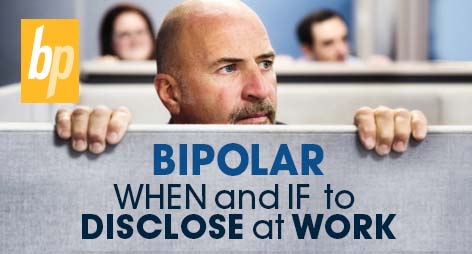
Jon B. has been in the workforce since he was 21—almost as long as he’s had a bipolar I diagnosis. Call his story a best-case scenario of bipolar on the job.
Jon, now 33, has been employed on the facilities staff at a Midwestern campus for the past couple of years. The others on his team of four know he has bipolar, something he cautiously shared in one-on-one conversations after he’d been on the job for six months or so and began to feel that they were friends.
“My co-workers had no negative reactions,” he says. “They simply listened to me and my story. I didn’t feel judged in the slightest.”
If he needs to leave work a little early for a therapist’s appointment, he says, “it’s just not a big deal.”
He hasn’t had any big issues due to bipolar symptoms, either.
“I try to be a happy and level-headed person, on my best behavior, who takes good care of myself and takes my medication regularly,” he says.
Of course, the employment picture isn’t so rosy for everyone. For one thing, research suggests that from 20 to 50 percent of people with bipolar don’t have paid employment. Among those who do, some find that mood symptoms lead to trouble on the job or stigma fosters a hostile environment.
